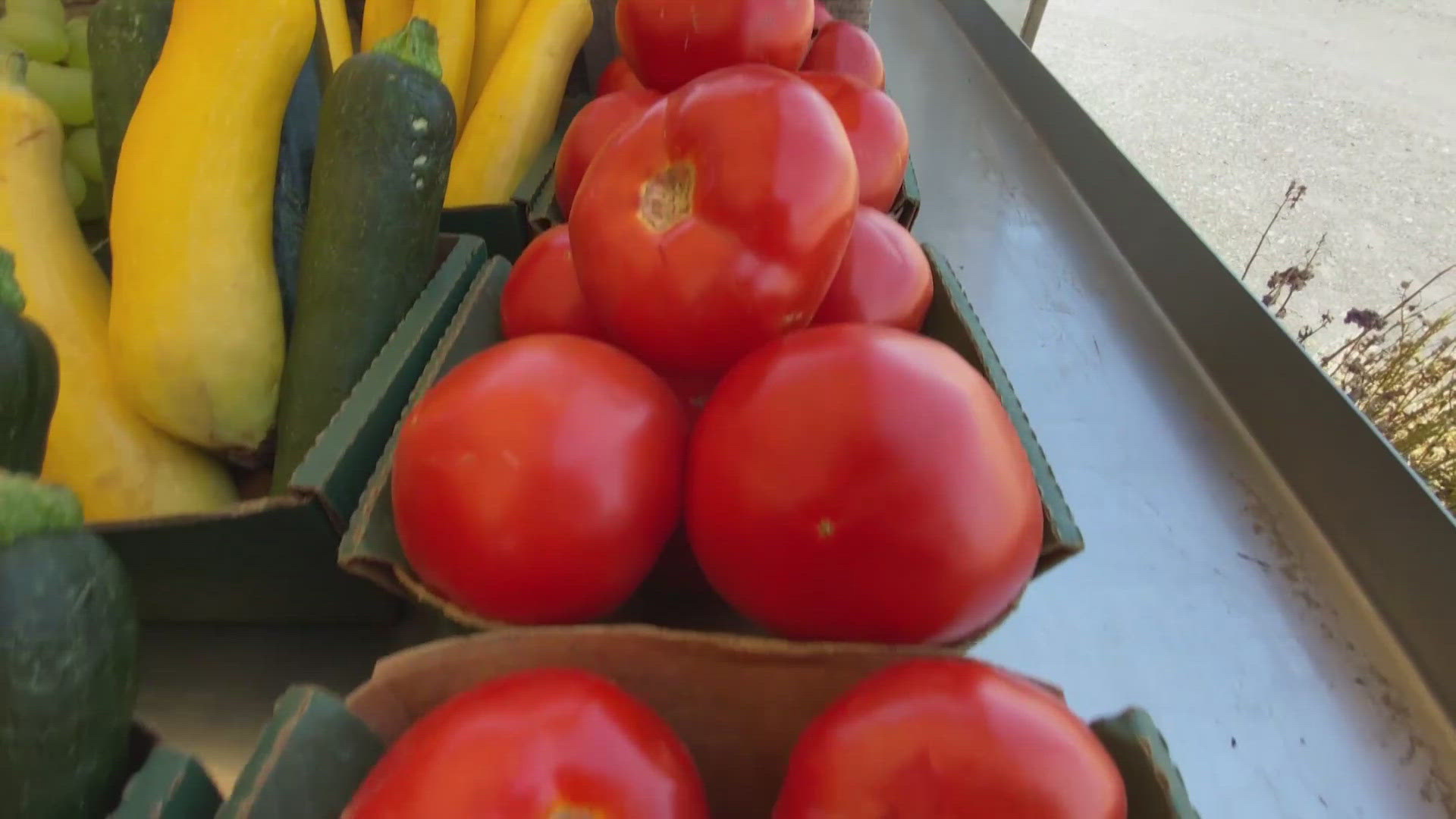SACRAMENTO, Calif. — California farmers help feed the nation. The state produces around half of the country's fresh produce. But right now, they're faced with a number of challenges from increased production costs to changing demand and diminishing profitability.
The topics were discussed with the California State Board of Food and Agriculture Tuesday at a state of the industry panel discussion.
"There's a lot of uncertainty in agriculture in California," said Don Cameron, president of the California Food and Agriculture Board. "The consumption of wine has dropped worldwide and so we're seeing a lot of vineyards being removed. We're seeing a lot of almond orchards being removed because of the low price and the constraints on water availability throughout California."
The board meeting was attended by industry analysts and representatives of food producers, including Community Alliance of Farmers, California Cattlemen's Association and Allied Grape Growers.
"We're seeing some downward pressures on prices that farmers are getting which is hard for consumers because they're looking at their grocery prices and trying to reconcile that. It's just the realities, especially in California, where we have so many highly perishable crops," said Karen Ross, secretary of the California Department of Food and Agriculture.
Ross was appointed to the position in 2019 by Governor Gavin Newsom and has worked in California agriculture policy for more than 30 years. She said normally one or two industries might be impacted by various challenges, but right now, they are more widespread across the industry.
"What's really unusual right now, how many of our top commodities, the tree nuts, the wine grapes, are all feeling this tremendous downward pressure on demand and the prices that go with that," Ross said.
Ross said consumers can support farmers by shopping at farmers markets or looking for 'California grown' when they shop at the grocery store.
Steve Arnold, president of the California Cattlemen's Association, told ABC10 that the cattle industry is seeing higher freight costs and pressures from insurance and regulatory agencies, but this year brought some positives for the industry as well.
"Well the good thing, obviously, has been the weather over the last two years. We've gotten a lot of rain and a lot of grass this year. But even better, our markets are up on the cattle, which is more than most of agriculture can say, so we've been very appreciative of all of that," Arnold said. "And it looks positive for two or three or four more years, so we're OK right now."
WATCH ALSO:



















